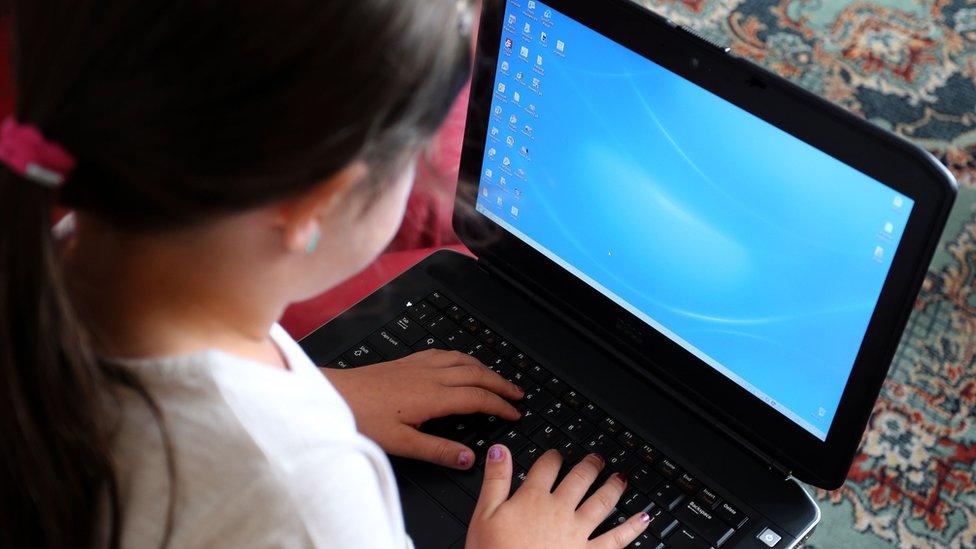More girls than boys exposed to harmful content online
- Published
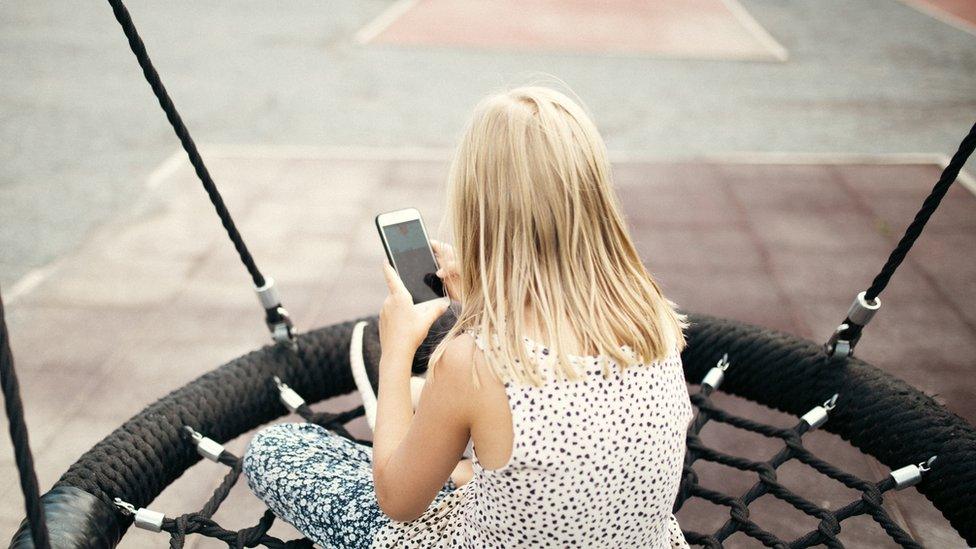
Nine in 10 girls surveyed said they had their own phone
Teenage girls are more likely to be asked for nude photos online or be sent pornography or content promoting self-harm than boys, a report has found.
New research has been carried out into children and young people's online activity in Northern Ireland.
The report is based on survey responses from around 6,500 young people.
It found that girls are "much more likely to experience something nasty or unpleasant online".
The Growing Up Online report was written by academics from Stranmillis University College's Centre for Research in Educational Underachievement (CREU) and funded by the Safeguarding Board for Northern Ireland (SBNI).
It aimed to find out about children's online activities and their safety online.
A total of 3,800 children aged 8-13, and 2,650 aged 14-18, took part.
Positive experiences
The report said that children and young people also had many positive experiences online, using their phones to:
Listen to music
Play games
Message friends or family
Nine in 10 of those 8-13 year olds surveyed said they had their own phone, compared to 99% of 14-18 year olds.
Youtube, Whatsapp, Snapchat and TikTok were the most popular social media sites for both age groups, but more than three-quarters of 14-18 year olds also used Instagram.
Many respondents reported spending significant amounts of time online.
For instance, a third of 14-18 year olds reported spending four hours or more online during a school day.
Almost two-thirds reported spending more than four hours online at weekends.
One in five 14-18 year-olds said they spent more than seven hours a day online at weekends.
"The impact of this high usage, as reported by the young people and confirmed by their teachers, was a growing trend for pupils to come in to school 'wrecked' or 'in a complete state' or with their 'heads down… sleeping' in class," said the report.
Nude photos
One in five children and young people who took part in the research said something nasty or unpleasant had recently happened to them online.
The most common experience was that "mean or nasty comments" made about them or sent to them.
But there was a difference between boys and girls when it came to the type of nasty online experience they had.
Girls were more likely to have mean or nasty comments made about them or rumours spread about them.
More than 5% of girls aged 14-18 said they had been asked to send nude photos or videos online or expose themselves, three times higher than the rate among boys.
More than 5% of 14-18 year-old girls also said they had seen or been sent pornography, and twice as many girls as boys reported being sent "inappropriate photos" they had not asked for.
More girls than boys also reported being sent content promoting suicide, eating disorders and self-harm.
Previous research carried out in Northern Ireland had suggested that girls were more likely than boys to experience cyber-bullying.

Lily and Melissa spoke to Good Morning Ulster
Lily and Melissa, who are both 17 years, told BBC's Good Morning Ulster programme they spent about five or six hours online every day.
"As soon as I get home from school until 10 o'clock at night - I'm online" said Lily.
The Ashfield Girls' High School pupils said they mainly used social media platforms such as TikTok, Facebook, Instagram and Snapchat.
Melissa said older people often did not understand young people's experiences of the internet.
"[They] never really grew up with that [the internet] whereas it's absolutely essential today, we do everything in school online, the likes of working and homework - we need it," she said.
Luc Berthelot, 18, told the programme seeing harmful content online was normal,
"Nearly every day - it's kind of like a social contract where we have come to this point where we are aware of the dangers with online safety but we accept them as a reasonable price to pay for connectivity and the benefits that we get," he said.
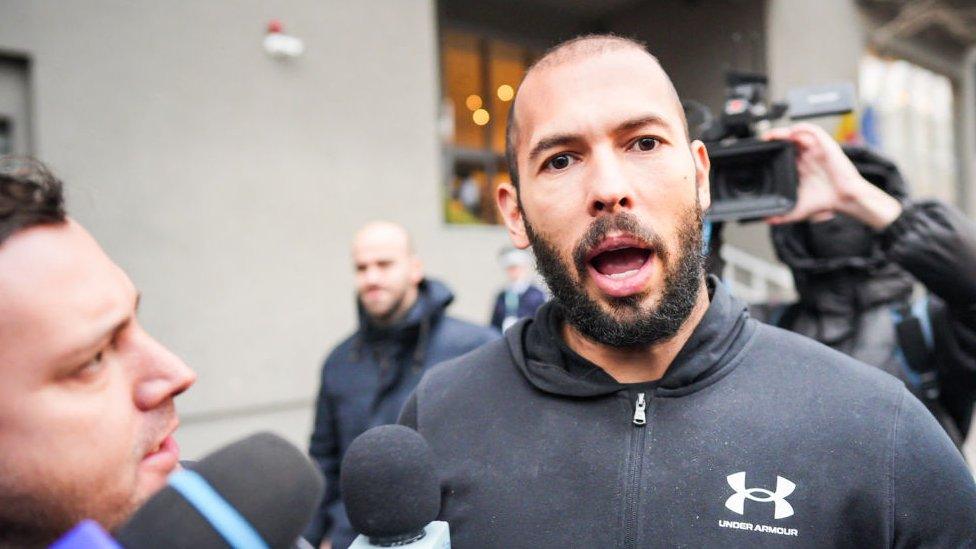
Online influencer Andrew Tate surrounded by press following his arrest in Romania
In the focus group interviewers, the report said several boys had expressed positive opinions about the influencer Andrew Tate.
Mr Tate is facing trial on rape and human trafficking charges in Romania.
He denies the charges.
"I think he's good," said one boy quoted in the Growing Up Online report.
"He's conservative. He's not into the whole progressive thing, and all these new ideas…there's a lot of new cults in recent years and a lot of stuff that I don't agree with."
Without exception, the girls held negative opinions about Andrew Tate, said the report.
The authors of the study admitted it had a number of limitations and could not claim to be truly representative of all children and young people in Northern Ireland.
But they said it suggested there was a need for more training and resources in online safety for young people and "stricter enforcement of age restrictions on certain apps or sites, where currently it is much too easy for children to enter a false date of birth".
Related topics
- Published11 July 2023
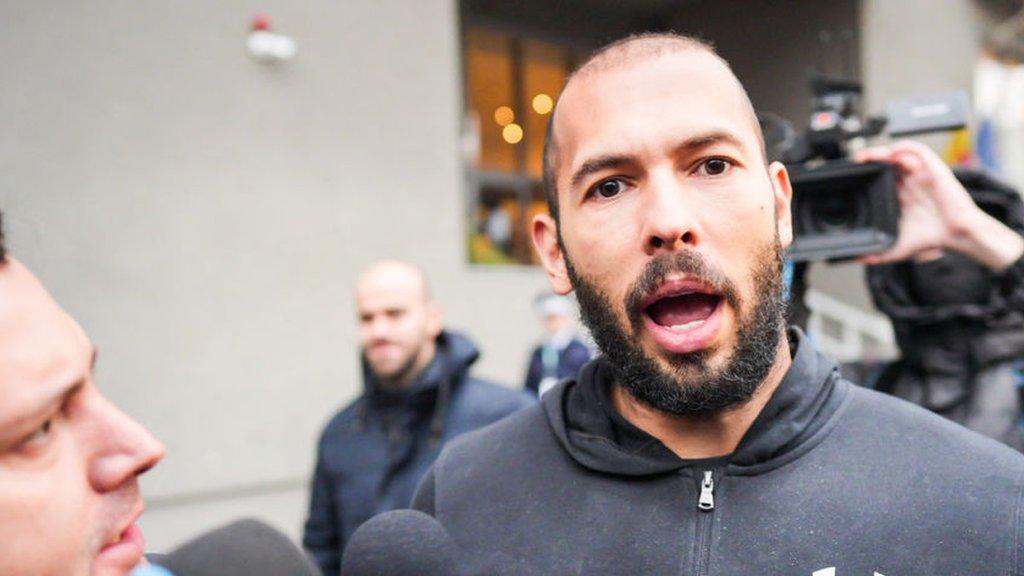
- Published22 June 2023
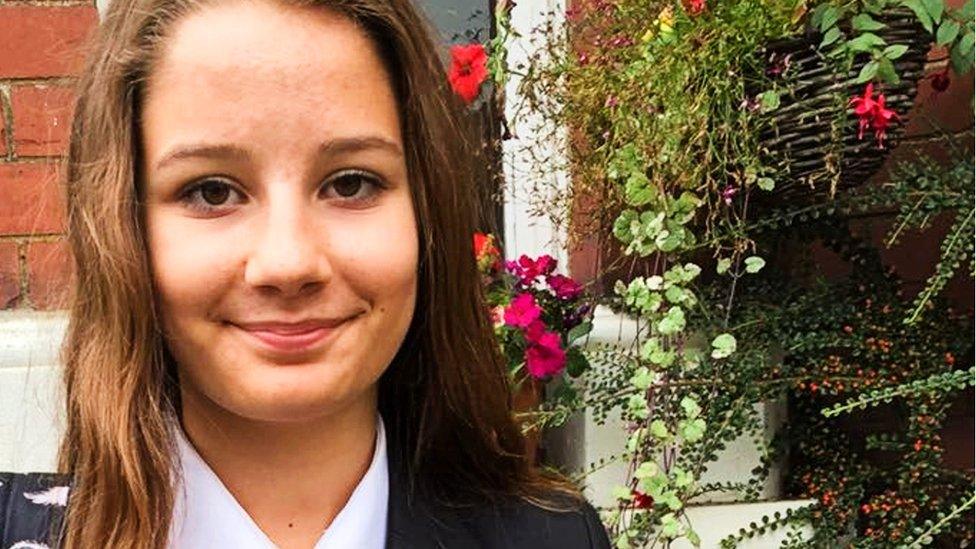
- Published10 February 2021
